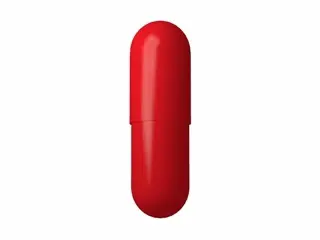Hair Loss
Effective treatments and supplements for hair loss to help restore hair volume and strengthen strands. Shop trusted products designed to support healthy hair growth and reduce shedding.
Hair loss affects millions worldwide. Many seek reliable solutions. The market offers various medications. Some are clinically proven to help. Let’s review popular options found in this category.
Avodart is a well-known medication for hair loss. It contains dutasteride. This drug blocks DHT, a hormone linked to hair loss. By reducing DHT levels, Avodart can slow hair loss and promote regrowth. It's often prescribed for male pattern baldness. Results may take several months. Side effects can include decreased libido and erectile issues. Always consult a doctor before use.
Fincar contains finasteride as its active ingredient. Finasteride is also a DHT blocker. It helps prevent further hair thinning. Many users report thicker hair after consistent use. The medication is commonly taken once daily in pill form. Like Avodart, side effects can include sexual dysfunction. However, it is generally well-tolerated. Users need patience; visible results often appear after 3–6 months.
Finpecia is another finasteride-based treatment. It is similar to Fincar and Propecia. Finpecia works by lowering DHT levels. It prevents hormone-induced hair loss. Users take it orally once a day. Finpecia is valued for its affordability. Its efficacy matches that of branded options. As with all finasteride drugs, side effects should be discussed with a healthcare provider.
Penisole is a generic form of finasteride. It also targets male pattern baldness. Penisole helps stop hair loss and may support regrowth. It is widely used due to cost-effectiveness. Standard dosing is once daily. Side effects mirror those of other finasteride products. Careful consideration is necessary before starting treatment.
Propecia is the branded finasteride. It is among the most popular hair loss medications. Doctors often recommend Propecia as a first line therapy. It reduces scalp DHT by about 70%. Many clinical trials support its effectiveness. The pill is taken daily, usually 1 mg. Common side effects are low and reversible. Propecia requires long-term use for best results.
Proscar contains finasteride but at a higher dose compared to Propecia. It was initially approved to treat an enlarged prostate. Doctors sometimes prescribe Proscar off-label for hair loss. The higher dose can lead to more side effects. It is important to follow medical advice when using Proscar for hair issues.
Rogaine stands apart from the pills. It is a topical treatment containing minoxidil. Rogaine increases blood flow to hair follicles. This stimulates hair growth and slows loss. It is applied directly to the scalp twice daily. Rogaine is suitable for both men and women. Many users see visible improvement within 4 months. Side effects can include scalp irritation or itching. Consistent use is key to maintaining benefits.
Choosing the right hair loss medication depends on individual factors. These include age, health, and pattern of hair loss. Pills like finasteride-based drugs target hormonal causes. Rogaine works by stimulating follicles directly. Some users combine treatments for better results. Consulting a healthcare professional is recommended before starting any medication.
Side effects vary across medications but are commonly mild. Sexual side effects with finasteride drugs may affect some men. Topical treatments like Rogaine risk local scalp reactions. Patience and consistent use are important. Hair regrowth can be slow, and results differ per person.
Many users report satisfaction with these medications. Clinical studies support their ability to slow hair loss and stimulate growth. However, stopping treatment usually reverses gains. Long-term commitment is often necessary. Monitoring by a healthcare provider can help manage potential side effects.
In summary, Avodart, Fincar, Finpecia, Penisole, Propecia, and Proscar offer effective oral options targeting DHT. Rogaine provides a topical alternative with a different mode of action. Understanding each medication’s benefits and risks guides proper choice. For those troubled by hair loss, these options provide hope backed by science.






